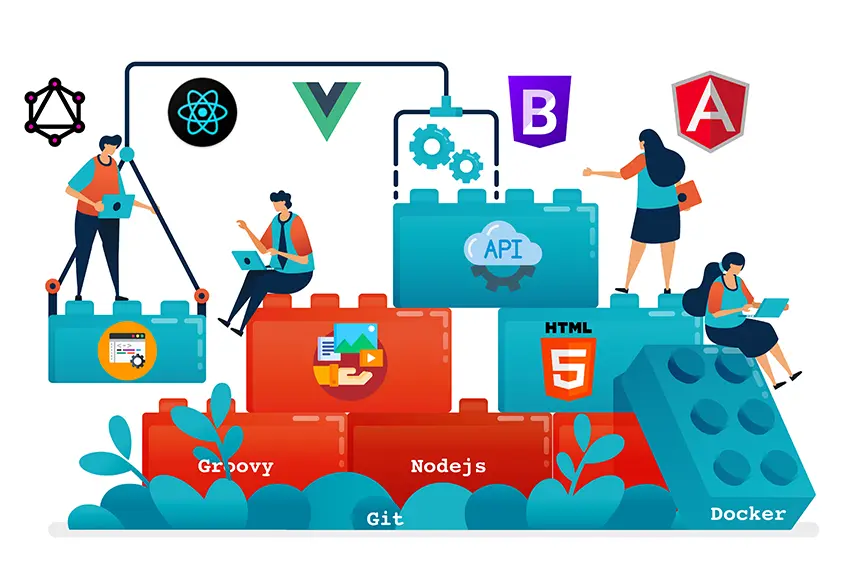Are you looking to build a website or manage your content with ease? Look no further! We’ve compiled a list of the top 10 free and open source CMS (Content Management System) software that will unleash your creativity and empower you to create stunning websites. Whether you’re a seasoned developer or a beginner, these CMS options provide a user-friendly interface and a wide range of features to suit your needs. Let’s dive in and explore these remarkable tools!
1. WordPress: The Powerhouse of CMS
WordPress, the most popular CMS software, has been powering millions of websites worldwide. It offers an extensive range of themes, plugins, and customization options, making it ideal for both beginners and professionals. With its intuitive interface, you can easily create and manage your website, blog, or online store. The WordPress community is vast, providing constant support and updates to ensure your website stays secure and up-to-date.
2. Joomla: The Versatile CMS
Joomla is another powerful CMS that caters to both beginners and advanced users. It offers a wide range of templates and extensions, allowing you to create any type of website, from personal blogs to corporate portals. Joomla’s user-friendly interface and extensive documentation make it easy to navigate, while its robust security features ensure the safety of your website.
3. Drupal: The Scalable CMS
Drupal is renowned for its scalability and flexibility, making it the go-to choice for complex websites and enterprise-level applications. With its modular architecture, Drupal allows you to create custom content types and build intricate workflows. It also offers a vast array of themes and modules to enhance your website’s functionality. Though Drupal might have a steeper learning curve compared to other CMS options, its powerful features make it worth the effort.
4. Ghost: The Minimalist CMS
If you’re a fan of minimalist design and a distraction-free writing environment, Ghost is the CMS for you. Designed specifically for bloggers, Ghost focuses on simplicity and speed. Its Markdown-based editor allows you to focus on your content without any distractions. Ghost also offers a range of themes and plugins to customize your website and create a unique online presence.
5. Grav: The Flat-File CMS
Grav is a flat-file CMS that eliminates the need for a database, making it fast and lightweight. Its file-based approach allows for quick content updates and easy version control. Grav’s flexible architecture and powerful caching system ensure optimal performance. With its modern design and extensive plugin library, Grav is perfect for building sleek and dynamic websites.
6. Typo3: The Enterprise-Grade CMS
Typo3 is a robust CMS that caters to large-scale enterprise websites. It offers a wide range of features, including multi-language support, user management, and advanced content editing capabilities. Typo3’s extensive customization options and scalability make it an excellent choice for businesses with complex requirements. While Typo3 may require some technical expertise to set up, its powerful features and flexibility make it a top contender.
7. ProcessWire: The Developer’s CMS
ProcessWire is a developer-friendly CMS that provides complete control over your website’s structure and functionality. With its intuitive API and modular architecture, ProcessWire allows developers to create custom solutions tailored to their specific needs. Its user-friendly admin interface and powerful template engine make content management a breeze. If you’re a developer looking for full creative freedom, ProcessWire is the CMS for you.
8. SilverStripe: The User-Centric CMS
SilverStripe is a user-centric CMS that focuses on creating engaging and interactive websites. With its intuitive interface and drag-and-drop functionality, SilverStripe allows users with minimal technical knowledge to create stunning websites. Its flexible framework and powerful templating system provide endless possibilities for customization. SilverStripe also offers a range of modules and extensions to enhance your website’s functionality.
9. Concrete5: The Beginner-Friendly CMS
Concrete5 is a beginner-friendly CMS that simplifies the website building process. Its user-friendly interface and in-context editing feature allow you to make changes to your website effortlessly. Concrete5 offers a range of themes and add-ons, making it easy to customize your website’s design and functionality. With its built-in SEO features and responsive design capabilities, Concrete5 ensures your website is optimized for search engines and mobile devices.
10. Plone: The Secure CMS
Plone is a secure and robust CMS that prioritizes content security and accessibility. It offers a range of features, including version control, workflow management, and granular user permissions. Plone’s extensible architecture and powerful search capabilities make it an excellent choice for large-scale websites and intranets. With its emphasis on security and accessibility, Plone ensures your content remains protected and accessible to all users.
In conclusion, these 10 free and open source CMS software options provide a wide range of features and customization options to suit your unique needs. From WordPress’s versatility to Plone’s security, each CMS offers a different set of strengths. Whether you’re a beginner or an experienced developer, these CMS tools will empower you to create stunning websites and manage your content effortlessly. So, unleash your creativity and take advantage of these remarkable tools to build your online presence today!






